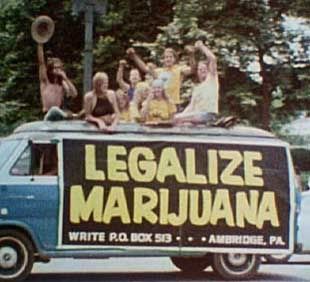The Broadus Effect:
LA Weekly
Of six polls released so far on Prop 19, the November ballot initiative that would legalize marijuana for adults 21 and older, three have the yeas winning easily, while three have it losing narrowly.
What gives? As usual, if you have a polling conundrum, Nate Silver is your man. And in this case, his hypothesis is fascinating.
Silver is the stat whiz who first created a formula for predicting -- with astounding accuracy -- the performance of baseball players. Then, under the pseudonym Poblano, he began analyzing polls to forecast the many outcomes of the long Democratic presidential primary campaign. Then he set up shop as fivethirtyeight.com, which has since been bought by The New York Times. He predicted with uncanny accuracy the 2008 election.
Anyway, Silver notes that three polls in which Prop 19 is winning are "robopolls," meaning they're automated -- you push a number on your phone to respond. In the three where Prop 19 is losing, the pollsters are actual humans asking the respondents questions.
Silver notices something else: Huge spreads in the numbers among African-Americans.
In the robopolls, blacks favor Prop 19 by 28 points or more. In the only human poll where they break out demographics, African-Americans are opposed by 12. There are large disparities among Latino voters, too.
The hypothesis: The automated polls give the respondent a more secure feeling of anonymity and no social stigma, so he feels free to voice his true opinion. (Silver also notes that it's possible the automated polls are having trouble getting a representative sample of African-Americans because they have a lower response rate to robopolls.)
But if indeed black voters are more honest with the robopolls, it would amount to a mirror of the Bradley effect.
Federal Inconsistency shouldn't stop the legalization of marijuana
LA Times
The law is the law. If we unquestioningly accepted that maxim, imagine where we would be today. Jim Crow would be alive and well, rivers and skies would be polluted, and women wouldn't be allowed to vote.
Yet such is the mindset of many of those who criticize Proposition 19, the marijuana regulation and taxation initiative on the November ballot. In his July 18 Times Op-Ed article, UCLA public policy professor Mark A.R. Kleiman declares that state legalization "can't be done." He points out, correctly, that if the initiative is successful, the federal marijuana prohibition laws will remain in place. What he assumes, incorrectly, is that federal agents will swarm into California, busting farmers and arresting distributors and shopkeepers, to say nothing of the garden stores that sell them equipment and supplies, the accountants who do their books and the municipal tax officials who delight in assessing and collecting the new tax revenues.
Kleiman might well have uttered, "The law is the law."
But the law is neither absolute nor infallible, and that's why Californians can — and should — legalize, regulate and tax marijuana-related commerce.
The federal-state dynamic concerning marijuana is not complicated. Under our system of federalism, both the states and the feds may prohibit commerce in marijuana, but neither is required to do so. Similarly, during alcohol prohibition (1920-33), commerce in alcoholic beverages was prohibited not only by federal law (the Volstead Act) but by the laws of most states. In 1923, New York repealed its state prohibition laws, leaving enforcement, for the remaining 10 years, entirely to the feds. California voters overwhelmingly did the same thing in 1932, one year before national prohibition was repealed.
Let's think this through. If Proposition 19 passes, two important balls roll into the feds' court. The first is that the sole responsibility and expense of enforcing marijuana prohibition will be shifted to them. After Nov. 2, marijuana "offenders" could be arrested only by federal agents, prosecuted only under federal law, and sentenced only to federal detention.














No comments:
Post a Comment